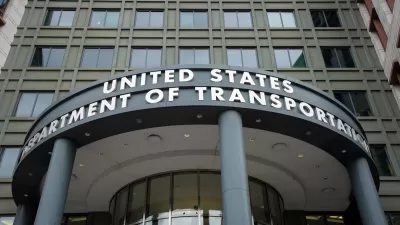Ideally, the best way to encourage sales of non-polluting electric vehicles would be to price carbon emissions. But if that isn't possible, why not reward EV owners with perks such as free parking; or would that be a distortionary incentive?
Severin Borenstein, director of the UC Berkeley Energy Institute at the Haas School of Business, views the free parking privilege as a "distortionary incentive", meaning that the reward creates a new set of problems. He points to the 15-year policy at Los Angeles International Airport (LAX) of giving free parking (now $30 per day) for EVs that was finally cancelled on March 1. The incentive served to "lower the overall cost of travelling [sic] by air, itself a greenhouse gas (GHG)-intensive activity". It was cancelled in part due to travelers using the the EV charging parking stalls for long-term parking, denying the service for those motorists actually in need of recharging their vehicles.
His article illustrates the gap between the laws that policy-makers enact and what economists - in this case, energy economists, say is good policy.
The near-unanimous view of economists is that the best way to deal with pollution externalities is by pricing them, generally through a pollution tax or cap and trade program. Yet, policy makers still prefer to reward “good” behavior rather than impose costs on bad behavior.
Turning toward road funding, Borenstein writes, "Exempting EVs from paying for road use is like giving them free parking at LAX, an indirect reward for good behavior that will be less equitable and efficient than taxing the negative externalities directly". Noting that "technology now allows easy pricing of vehicle miles traveled (VMT)", he supports charging a VMT-fee for those vehicles that pay no gas taxes.
However, he also supports gas taxes, noting that his Prius has a license plate stating, "TAX GAS". He asserts, "There's really no reason to think that exemption for road taxes creates the right level of incentives for reducing GHGs".
Should Oregon's voluntary VMT-fee bill, SB 810 be signed by Gov. John Kitzhaber, as expected, it will be interesting to see how many EV owners step-up and ask to be charged by the miles they drive. However, it should be noted that conventional car owners may ask to participate as they will be refunded the gas tax they pay. The program is limited to 5,000 participants.
FULL STORY: Bad Incentives For Green Choices

Alabama: Trump Terminates Settlements for Black Communities Harmed By Raw Sewage
Trump deemed the landmark civil rights agreement “illegal DEI and environmental justice policy.”

Study: Maui’s Plan to Convert Vacation Rentals to Long-Term Housing Could Cause Nearly $1 Billion Economic Loss
The plan would reduce visitor accommodation by 25% resulting in 1,900 jobs lost.

Planetizen Federal Action Tracker
A weekly monitor of how Trump’s orders and actions are impacting planners and planning in America.

Wind Energy on the Rise Despite Federal Policy Reversal
The Trump administration is revoking federal support for renewable energy, but demand for new projects continues unabated.

Passengers Flock to Caltrain After Electrification
The new electric trains are running faster and more reliably, leading to strong ridership growth on the Bay Area rail system.

Texas Churches Rally Behind ‘Yes in God’s Back Yard’ Legislation
Religious leaders want the state to reduce zoning regulations to streamline leasing church-owned land to housing developers.
Urban Design for Planners 1: Software Tools
This six-course series explores essential urban design concepts using open source software and equips planners with the tools they need to participate fully in the urban design process.
Planning for Universal Design
Learn the tools for implementing Universal Design in planning regulations.
Caltrans
Smith Gee Studio
Institute for Housing and Urban Development Studies (IHS)
City of Grandview
Harvard GSD Executive Education
Toledo-Lucas County Plan Commissions
Salt Lake City
NYU Wagner Graduate School of Public Service




























